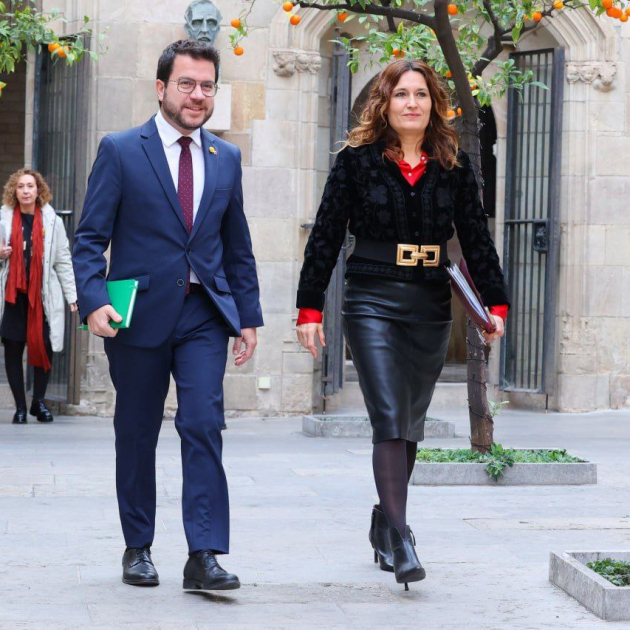The Catalan government recognizes that it is "almost impossible to avoid entering a state of emergency" due to the drought that has been afflicting Catalonia for more than three years. The spokesperson for the executive, Patrícia Plaja, recalled this Wednesday that the situation due to the lack of rain remains critical and is getting worse with each passing day and that, therefore, although an attempt will be made to delay the entry into the new status for "days and weeks", the Catalan population needs to be aware of the situation. Emergency status is the highest of the five levels of drought alert which most of Catalonia has successively passed through: Normal, Alert, Exceptionality, Pre-Emergency, Emergency.
In the press conference after the first Catalan cabinet meeting of 2024, the spokesperson stressed that levels in the reservoirs are still falling, with the Ter-Llobregat system which covers most of metropolitan Barcelona and Girona, at just 17% of its capacity. At 16%, it will enter into emergency status, and the rain that is forecast for the coming days is predicted to be insufficient to avoid this. However, she stressed the role which has been played by Catalonia's desalination plants throughout 2023, with production of fresh water over the last year reaching 75 cubic hectometres, which, on top of the 73 hectometres for the previous year, adds up to almost 150 cubic hectometres. "Without this early action we would be in a catastrophic scenario today," she reflected.
With regard to the current health situation - with, in particular, a winter 'flu epidemic raging - the government noted that any instructions to be given on broadening the use of face masks are a matter under the control of the Spanish health ministry, and Plaja limited herself to repeating the basic advice on mask usage being sensible for people with symptoms, or with risk factors, as well as wearing them in particularly sensitive spaces such as hospitals.
Budget for the third consecutive year
The spokesperson was more explicit about the process of passing a Catalan government budget for this year. She stated that this is the government's highest priority issue at present, reiterating that the negotiations with the political parties with whom the executive considers that agreements could be reached are ongoing, and she insisted on the appeals that the executive is making to these groups to separate their interests and partisan strategies and facilitate the passing of the budget.
Given the numerically-weak status of the Catalan Republican Left (ERC) government - having only 33 MPs in the 135 seat chamber - the Pere Aragonès administration will need support from at least two other parties to get the budget through. The executive agreed the 2023 budget on February 1st last year after reaching accords with the Catalan Socialists (PSC) and the alternative-left En Comú Podem. Plaja asserted that the executive wants to prevent the talks for the new budget from being delayed and expressed confidence in an agreement in a matter of weeks. She insisted on the executive's optimism, convinced that a budget deal can be secured for the third year in a row, a feat, as the spokesperson pointed out, which has not been achieved in Catalonia for more than ten years.
When asked about the controversy in relation to the effigy of Spanish PM Pedro Sánchez which was beaten by far-right protesters outside the Socialist (PSOE) headquarters on New Year's Eve, Plaja stated that the incident exudes hatred, asserting that such actions must always be condemned, regardless of who is the target of the insults. She added that this controversy shows that there is a double standard after "clear displays of hatred" have been directed at Catalans "for too long".
